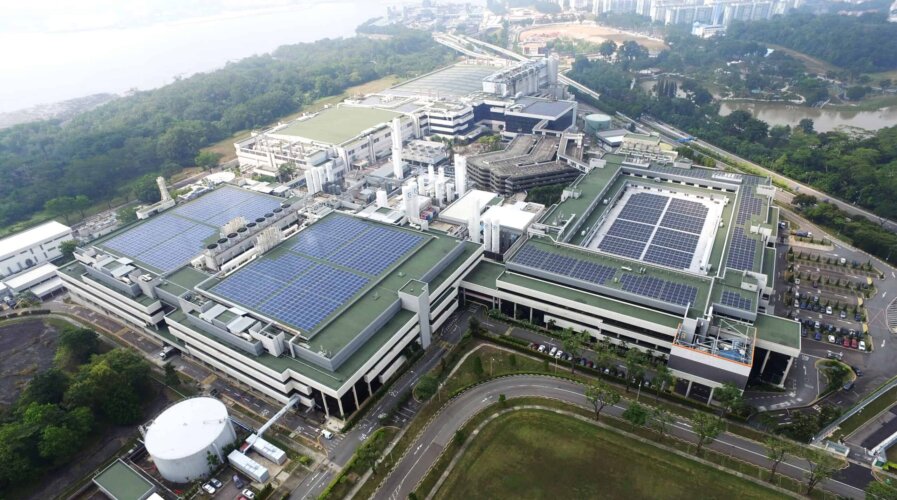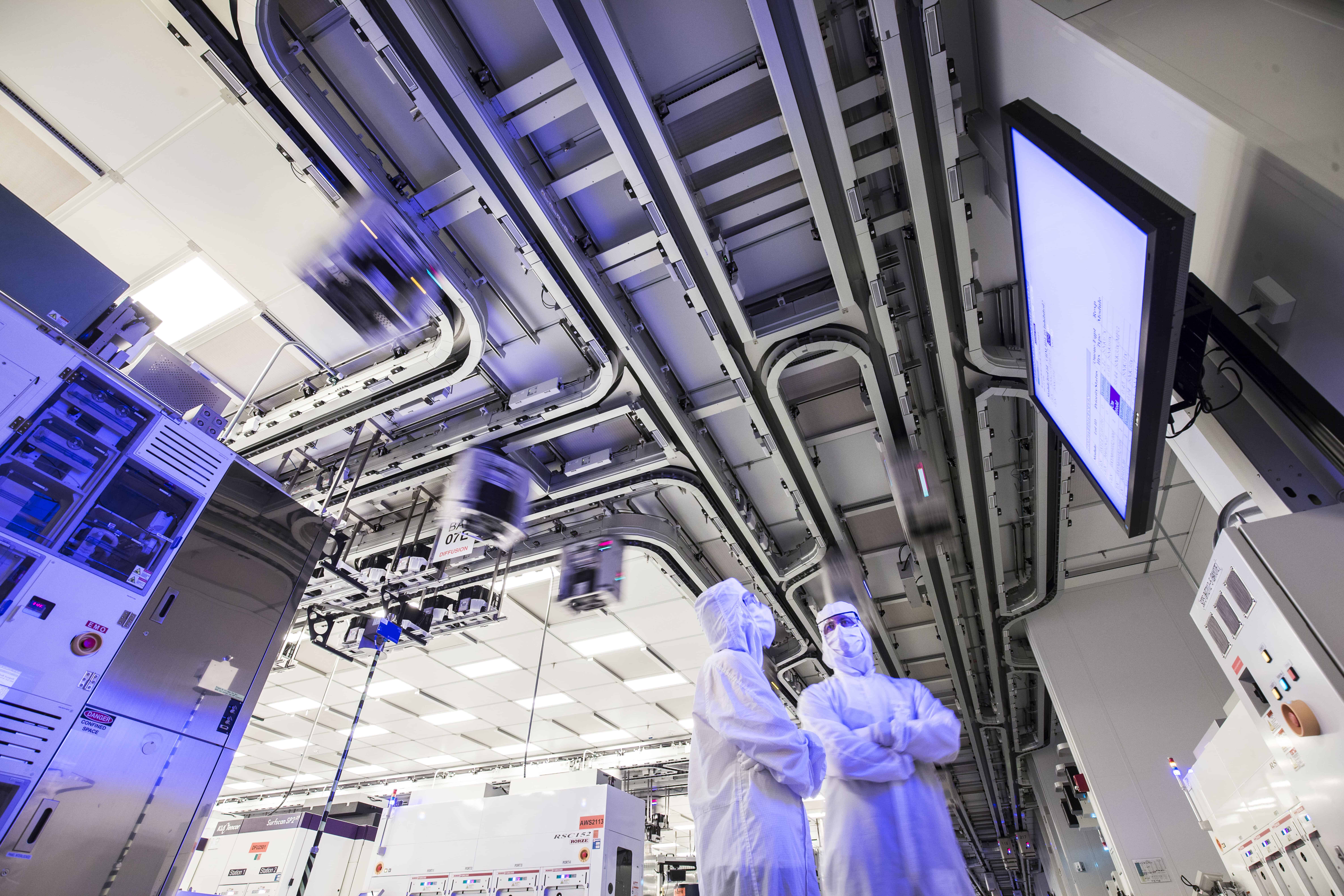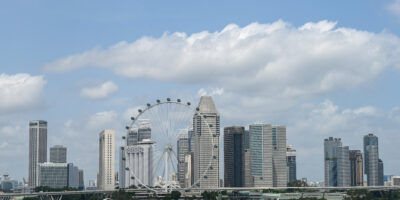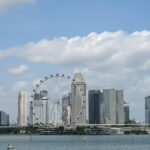
The expanded fab facility will produce an additional 450,000 of the company’s 300mm wafers annually, raising overall capacity in Singapore to approximately 1.5 million 300mm yearly.Source: GlobalFoundries
GlobalFoundries unveils Singapore’s most advanced chip facility to date
- GlobalFoundries launched a US$4 billion expansion of its current wafer fabrication facility in Singapore, adding 23,000m2 of clean room space.
- The expanded fab facility will produce an additional 450,000 of the company’s 300mm wafers annually, raising overall capacity in Singapore to approximately 1.5 million 300mm yearly.
Despite the intense global battle for high-end chip investments, Singapore seems to be catching up fast on its goals to shore up its semiconductor industry. This week, US-based contract chip maker GlobalFoundries unveiled a new US$4 billion (S$5.5 billion) microchip fabrication plant in the city island as part of the company’s global expansion plan.
The fabrication plant is significant because it is the most advanced semiconductor facility in the city island to date, one that, if run at its maximum capacity, makes up 45% of revenue for GlobalFoundries. The company’s press release noted that the fabrication plant spans 23,000 square meters (248,000 square feet) and will be able to produce 450,000 300mm wafers per year at total capacity by 2025 to 2026.
“The new facility spans a cleanroom space of over 23,000 sqm. The first tool was moved into the facility in June 2022, just within a year of the groundbreaking ceremony. The building’s design is engineered to prioritize sustainability, earning both the Administration and Manufacturing buildings Green Mark Gold status from Singapore’s Building and Construction Authority. It is outfitted with the latest technologies and solutions to manage resources and waste, recycle and reuse water and increase overall energy efficiency,” the statement reads.

GF employees in the Fab cleanroom. Source: GlobalFoundries
“It will increase the company’s global manufacturing footprint and boost its ability to serve customers across its manufacturing sites in three continents,” the press release said. After all, the contract chipmaker expects “growth in demand for essential semiconductor chips.” GlobalFoundries’ Singapore general manager, Tan Yew Kong, told reporters. He also noted that the 23,000sqm fab will create 1,000 high-value jobs in Singapore, 95% of which will include equipment technicians, process technicians and engineers.
“If we run (the Singapore campus’) capacity to the fullest, that will probably be (around) 45% of revenue for GlobalFoundries,” he said. Tan expects weak global demand for chips to pick up by the second half of 2024. The company’s Singapore operations, which serve 200 clients worldwide, also include two other fabs that produce 720,000 300mm wafers and 692,000 200mm wafers a year, respectively.
As the world’s third-largest foundry by revenue behind TSMC and Samsung, GlobalFoundries makes semiconductors designed by Qualcomm, MediaTek, and NXP Semiconductors. Its chips are found in smartphones, laptops, automobiles, virtual reality systems, video game consoles, and smart speakers and are also used in AI and 5G. Overall, the company serves approximately 200 customers globally.
Singapore’s chip market
Singapore has been witnessing big Western chip makers and related suppliers moving to increase production in the city island, allowing the local semiconductor industry to grow in leaps and bounds in recent years. This year alone, French substrate manufacturer Soitec will invest 400 million euros to double the capacity of its wafer plant in Singapore. At the same time, US semiconductor manufacturing equipment maker Applied Materials has broken ground on a new US$450 million plant in the city-state.
Speaking at the opening ceremony of the GlobalFoundries’ US$4 billion microchip fabrication plant, Singapore’s Deputy Prime Minister Lawrence Wong said the country “cannot afford to engage in a subsidy arms race” and outbid the US, China, Japan, and European Union, which have rolled out massive subsidies to attract chipmakers.
Admitting that Singapore is not the cheapest location globally, Wong noted that “we have many things going for us – our excellent connectivity; our reliability and stable business conditions; and also a critical mass of leading companies based here which cover the value chain, from design to wafer fabrication to assembly and testing.”
He also said that over the years, Singapore has carved out a niche in the production of specialty chips, which are present in almost every device used daily and will continue to be in solid demand given the trends in 5G, automotive, and the Internet of Things. Today, the city island’s semiconductor output makes up 11% of the global market.
READ MORE
- Safer Automation: How Sophic and Firmus Succeeded in Malaysia with MDEC’s Support
- Privilege granted, not gained: Intelligent authorization for enhanced infrastructure productivity
- Low-Code produces the Proof-of-Possibilities
- New Wearables Enable Staff to Work Faster and Safer
- Experts weigh in on Oracle’s departure from adland


